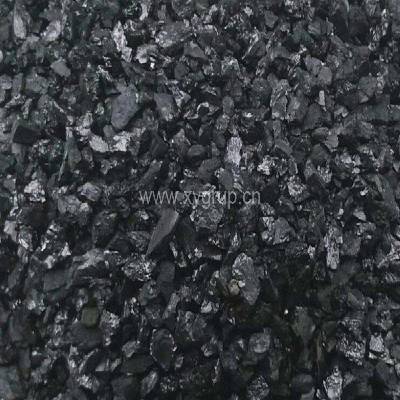(1) Wood charcoal: It can be divided into charcoal (made from wood chips as raw material), bamboo charcoal (made from bamboo as raw material), nutshell charcoal (made from walnut shell or apricot core as raw material), coconut shell charcoal ( Made from coconut shell), coconut shell charcoal or fruit shell charcoal is commonly used in water purifiers.
(2) Coal-Based Activated Carbon (made of anthracite, with better quality from Ningxia).
(3) Bone charcoal (made from animal bones).
(4) Silver-loaded activated carbon: Generally, nutshell activated carbon is used as raw material, and it is loaded with silver by a special process. The silver content is usually 0.1-0.3%. It will slowly release silver ions (Ag+) in water, and silver ions have Sterilization, so in addition to the adsorption function of ordinary activated carbon, silver-loaded activated carbon also has the function of inhibiting the reproduction of bacteria. The water purifier must use high-quality silver-loaded activated carbon, otherwise the silver ions in the effluent will exceed the standard at the beginning, and silver will no longer be dissolved after a short period of use.

Coal-Based Activated Carbon
Activated carbon was first used to make gas masks. With the progress of the times, Activated Carbon is slowly being used for deodorization in water plants. Later, the application of activated carbon became more and more extensive, such as: cigarette filters, sugar decolorization, military gas masks, detoxification, treatment of radioactive element pollution, conditioning of soil performance, sobering, treatment of indoor formaldehyde and other fields. Therefore, in the question of whether activated carbon can remove formaldehyde, the answer is self-evident!
We all know that activated carbon is a microcrystalline carbon material made of carbon material with developed internal pore structure, black appearance, strong adsorption capacity and large surface area. And activated carbon also contains many micropores that we can't see with the naked eye, and these micropores have great uses. It is because of the excellent pore structure of activated carbon that it has a strong adsorption function.
Although the speed of molecular motion is affected by material and temperature, its motion in the microenvironment is endless. Due to the mutual attraction between the molecules, when a molecule is captured by the inner pores of the activated carbon and then enters the pores of the activated carbon, it will cause continuous attraction between the molecules until the pores of the activated carbon can be filled.
It is understood that high-quality Coconut Activated Carbon can absorb a lot of harmful gases. However, activated carbons of different materials have different inner pore sizes, so there are more or less differences in adsorption functions.
Copyright:@2020-2021
Comments Please sign in or sign up to post.
0
0 of 500 characters used